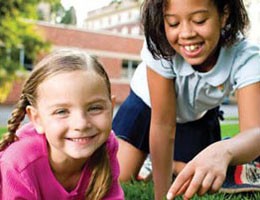
Science but NOT exactly what its all about.
What about this-
 Science can be simply be incorporated into the classes daily or weekly activities. It allows children to be involved and experiment. It allows the children to question.
Science can be simply be incorporated into the classes daily or weekly activities. It allows children to be involved and experiment. It allows the children to question.
EXPLORING SCIENCE in the classroom. Well… I was one of many who really dreaded having to face the challenges of this subject.
Science is such a vast topic area and as a student teacher I never knew where to start. I was aware of certain areas of discussion such as Space, Electricity and Biodiversity but I became slightly resentful when it came to exploring areas which could be taught in the classroom.
To try and get id of some of my misconceptions, I went on to read, Primary Science which sparked so many questions in my mind. Dunne et al suggest that science is not about learning facts and having scientific explanations for everything. Instead science is described in a way which is “falsifying” and children should understand that they will learn things and test them, however, there might always be ways in which other people or scientific experiments which will prove them wrong.
“ Children’s misconceptions first must be identified and reasons why they hold them understood” A real challenge for teachers in primary schools. Rutledge explains different areas in which teachers might go wrong. Children are full of ideas and imagination and their minds constructs thoughts of the world around them even if they are scientifically incorrect. There is a justified reason for it in their mind.
When tackling Science in the classroom we should:
– pre- assess ideas
-challenge and test ideas
-consolidate appropriate ideas
According to Rutledge, Teaching the tricky bits.
This book went onto discuss 5 questions which ensure an effective learning context.
Is the context fun ? will it motivate and ensure the learners ?
is the context accessible ? will it make sense to the learners ?
Is the context relevant ? does it provide the learners with a reason to carry out their work ?
Is the context appropriate? Does it support the necessary progression of skills and concepts ?
is the context flexible? Will it support differentiation and a cross curricular approach?
To further my knowledge and understanding of science I have made a SMART target for myself.
Specific-To gain further knowledge of Biodiversity and interdependence and to be able to understand the role of the ecosystems and how it effects the world around us.
Measurable-I will create a 2 A4 plan for as a lesson plan for my class.
Achievable – I will use different sources to gain an insight to the areas.
Relative-I will create a practical experiment or try to organise a trip which is relevant to the learning context.
Timely– I will start teaching this in 1PP1a and continue with the experiment or trip in 1PP1b.
I will relate my learning to the CfE outcome-
I can identify and classify examples of living things, past and present, to help me appreciate their diversity. I can relate physical and behavioural characteristics to their survival or extinction.
SCN 2-01a
 Next Steps
Next Steps
-To examine how biodiversity and interdependence impacts of society and the world around us.
-Find relevant media sources to support my findings
-Relevance-Use Animoto as an introductory stimulus to the class. Combine technologies within the learning context by going on to teach the children how to effectively use it.
References
- M. & Peacock, A. (2012) Chapter 1: How Science has evolved, in Primary Science: A guide to teaching practice. London: Sage
- Rutledge, N. (2010) Primary Science: Teaching the tricky bits. Maidenhead: OUP.






 “Wisdom Begins With Wonder” Socrates.
“Wisdom Begins With Wonder” Socrates.
 Here are a few words which express how I feel now.
Here are a few words which express how I feel now.

